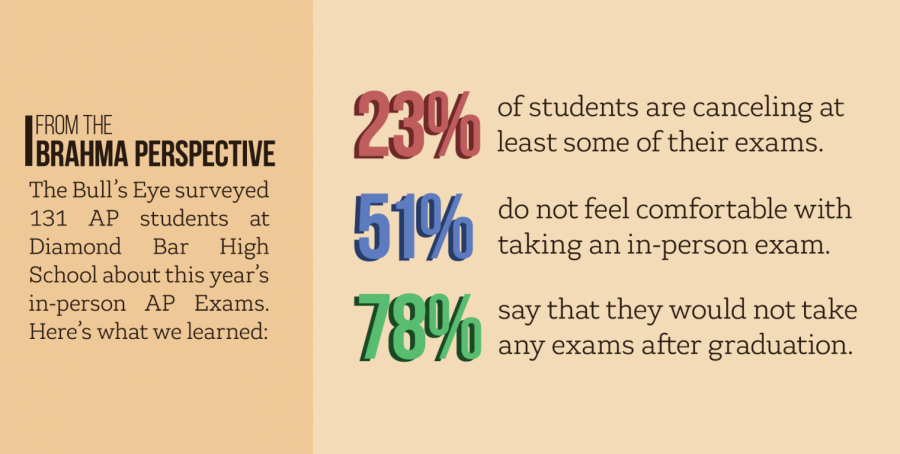Notorious CMC: College Board continues to stumble over COVID
As we head into the second year of the Coronavirus pandemic, the majority of educational institutions have figured out more sensible procedures than the half-baked plans they implemented last year. Only one organization appears to remain wallowing in the confusion that characterized the early pandemic: College Board.
Following last year’s mediocre online AP exams, many had expected that this year, College Board would unveil a better test-taking system. However, this year’s AP exams are looking to be quite the opposite—an inequitable mess of testing dates and formats that present many challenges to students and staff alike.
Most likely due to differing infection rates across the nation, College Board has decided to offer AP exams both online and in-person. Each has a variety of dates, ranging wildly from early May to mid-June, and several methods of administration. While the vast array of options appears to give students and schools more control based on local COVID-19 restrictions, all College Board has really done is shirk its responsibilities.
Rather than choosing just one testing method and date and sticking to it, as has been the practice for decades, they decided to offer a variety of dates and formats that force students and staff to make last-minute decisions.
In reality, the choice of exam administration methods and dates is merely an illusion, at least for Diamond Bar High School administration, who are essentially forced by pressure from parents and students, as well as guidance from College Board insiders, to offer in-person exams to its AP students. However, the financial and logistical difficulties of pulling off such a feat will be immense.
Aside from keeping dozens of classrooms clean and well-equipped for every exam administration, DBHS would have to hire about 20 proctors for the AP Calculus AB exam alone. Not to mention that there will surely be complaints about being in a closed room for several hours with 14 other potentially-infected students, regardless of any efforts on the school’s part.
But, were DBHS to only offer online exams, there would be outrage–and for good reason. Students won’t be able to revisit previous questions and the exams themselves will be harder, supposedly to mitigate the effects of cheating. These tests will be curved, so the knowledge that students will be compared to individuals who are potentially cheating will incentivize them to do the same.
With such unappealing circumstances, it’s no wonder that DBHS students are almost all opting to take in-seat exams, especially when it comes to math and science, whose online formats would require students to type work using a special keyboard. However, this solution is unfair to students with vulnerable family members or who are in other countries and don’t have the option to take an in-seat exam. Worse still, the online exam format is believed to be so inferior that students may feel pressured to attend the in-seat exams even if they suspect they’re sick.
Even in the classroom, those who opt for online exams will be hung out to dry, as teachers are likely to emphasize the content and skills that they expect will aid in-seat test takers. In many regards, taking the test online is a non-option for DBHS students.
What College Board should have done was devote itself entirely to creating a seamless online testing experience to begin with and choosing one exam date, so that students would all have equal opportunities to succeed. Instead, they dodged the issue and let schools take the heat for making a difficult decision that should have been College Board’s to face.
Your donation will support the student journalists of Diamond Bar High School. Your contribution will allow us to purchase equipment and cover our annual website hosting costs.









